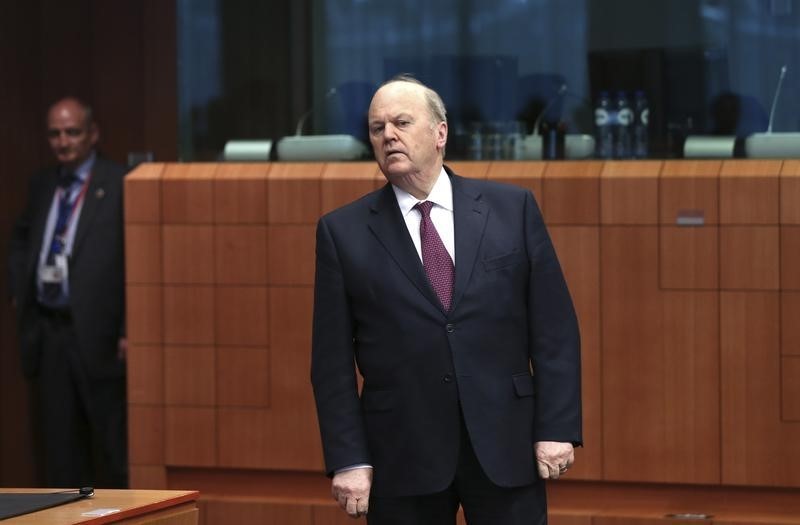DUBLIN (Reuters) - Ireland's finance minister wants the country's central bank to review the impact its new mortgage limits are having on the supply of houses for first-time buyers, Michael Noonan was quoted as saying on Friday.
Ireland's central bank offered relief to first-time house buyers when it finalised new regulations earlier this year that introduced curbs on mortgage lending aimed at avoiding a repeat of the devastating 2008 property crash.
The rules have helped ease a recovery in house prices which had rebounded particularly strongly in Dublin amid a lack of supply, but Noonan said builders believe the regulations are too restrictive and contributing towards the shortage of homes.
"Market conditions are changing rapidly and there are aspects of it now which, according to the construction industry, are inhibiting starter homes," Noonan told the Irish Times newspaper in an interview.
"All I'm saying is the bank should review. If the bank say we're not changing anything then of course I'll accept that."
Under the rules, mortgages are subject to an 80 percent loan-to-value (LTV) limit but only for those buying for the second time, while first time buyers can borrow 90 percent of the first 220,000 euros of the cost of a home.
However asking prices for houses in Dublin range from 250,000 to over 500,000 euros, according to property website Daft.ie, meaning the exemption may only apply to less than half the cost of a mortgage for some first-time buyers.
Noonan and his department resisted the new rules when they were first flagged a year ago and the minister is due to appoint a successor to outgoing Central Bank Governor Patrick Honohan in the coming weeks.
He told the Irish Times that 30 applications were under review for the post which carries a seat on the European Central Bank's governing council and that a shortlist of three candidates would be interviewed.
After Ireland's economy grew by seven percent in the first half of the year, Noonan added that when his department updates their economic forecasts next month, it will show that Ireland's debt will fall to "95ish" percent of gross domestic product at the end of 2016, versus a previous forecast of 100 percent.
Noonan has already said the ratio would fall below 100 percent by the end of this year.

He also said that assumptions for how quickly Ireland will balance its budget ahead of a 2018 European Union deadline was also "moving forward with the very rapid growth."